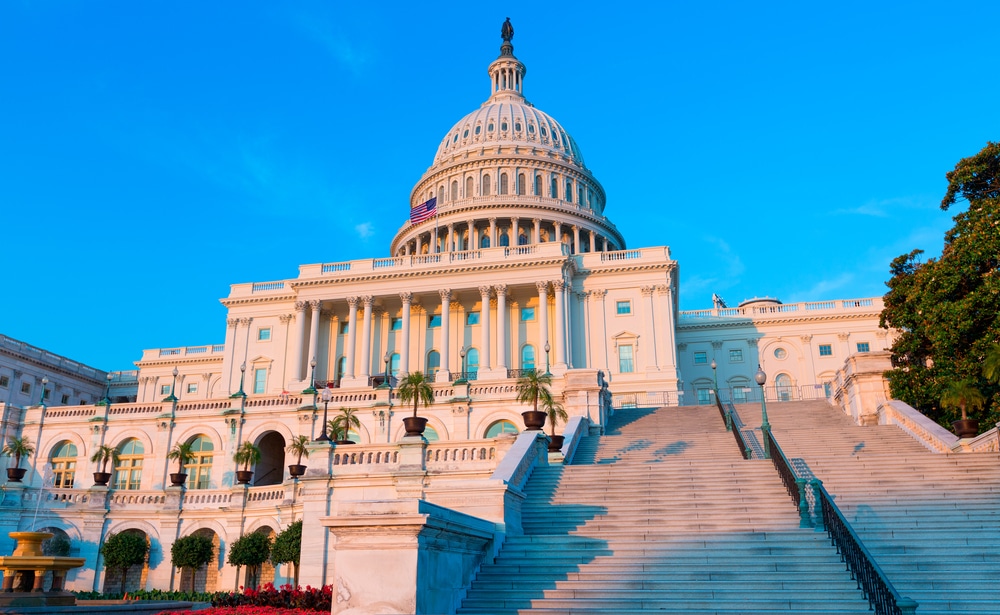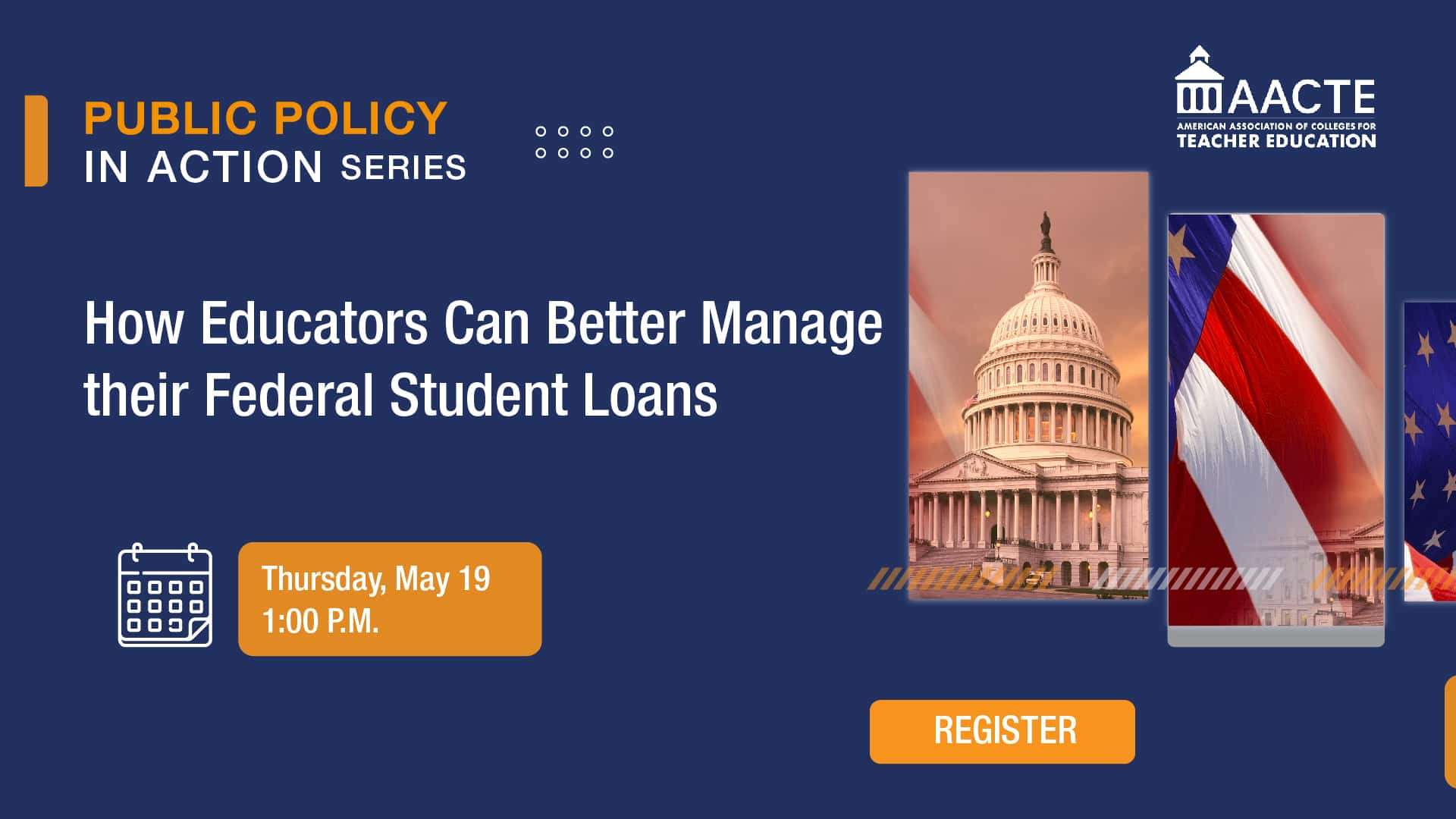17 Jun2022
By Allison Matthews

(Photo by Grace Cockrell)
A group of young people with Autism Spectrum Disorder who are interested in science, technology and related fields are getting a new chance to learn about physics and other topics as part of an innovative camp at Mississippi State, which may be the country’s first of its kind.
MSU Assistant Professor of Physics Ben Crider is using a prestigious $600,000 National Science Foundation 2019 Career Grant to advance his nuclear physics research, which includes a highly interactive summer experience for students with autism that was delayed due to COVID-19.
17 Jun2022
$2 Million Will Be Dispersed to Educator Preparation Programs Over the Next Two Years
By David Bednarz and Eric Scoville

Governor Ned Lamont and Connecticut Education Commissioner Charlene Russell-Tucker today announced new investments to defray certification-related testing costs for aspiring educators in Connecticut.
A total of $2 million dollars of federal, state-level reserve American Rescue Plan Act, Elementary and Secondary School Emergency Relief (ARP-ESSER) funding is being dedicated over a two-year period, which includes $750,000 in year one and $750,000 in year two. The remaining $500,000 is being set aside for educators of color and other educators who will be completing their student teaching in urban school districts.
07 Jun2022
By Kyle Mittan

Chris Richards/University of Arizona
A University of Arizona College of Education program that provides mentorship and educational resources to Arizona’s Indigenous communities will extend its reach thanks to a $1.2 million grant from the Arizona Department of Education.
The Native Student Outreach, Access and Resiliency program, better known as Native SOAR, emphasizes Indigenous teaching and knowledge. Over the course of 10 weeks, the program allows UArizona students from any major to spend about three to four hours a week mentoring middle and high students across Arizona and teaching them about attending college, cultural resiliency, leadership skills and identity exploration.
26 May2022
By James Carskadon

(photo by Megan Bean / © Mississippi State University) Partnership Middle School English class – MSU secondary education major Lauren Threadgill works with a class of seventh grade students as a student intern in the school.
A $2.4 million National Science Foundation grant supports a Mississippi State University-led project that aims better prepare educators for teaching in rural settings.
Mississippi State University is leading a nationwide project with the goal of better preparing educators for teaching in rural settings.
With $2.4 million in support from the National Science Foundation, the project entitled “Investigating STEM Teacher Preparation and Rural Teacher Persistence and Retention” brings together 14 universities to address workforce challenges in school settings, particularly for STEM teachers in rural areas. The project examines how educator preparation programs impact future STEM teachers’ intentions to teach in rural schools, as well as their retention rates at rural schools once they are in the workforce. Studies have shown that in addition to struggling to recruit teachers, rural schools have the highest rates of teacher attrition, with higher attrition rates occurring in the southern U.S. and in schools that serve low-income and minority students.
24 May2022
By Kaitlyn Brennan

See you on Twitter @brennan_kait!
Do you have a question about Washington Update? Want more information? Email me, and let’s have a virtual coffee break: kaitlynbrennan88@gmail.com.
19 May2022
By Brooke Evans
 PNC Bank, N.A. has awarded AACTE with a charitable sponsorship to support the Holmes Program with the goal of helping to diversify the nation’s education workforce. This program provides mentorship, professional development and support to students who self-identify as racially and ethnically diverse and are pursuing graduate degrees in education at AACTE member institutions. More specifically, the PNC funding will support the Holmes Scholars’ Research and Dissertation Retreat, and the Career Expo.
PNC Bank, N.A. has awarded AACTE with a charitable sponsorship to support the Holmes Program with the goal of helping to diversify the nation’s education workforce. This program provides mentorship, professional development and support to students who self-identify as racially and ethnically diverse and are pursuing graduate degrees in education at AACTE member institutions. More specifically, the PNC funding will support the Holmes Scholars’ Research and Dissertation Retreat, and the Career Expo.
The Research and Dissertation Retreat brings together Holmes Scholars for an intensive, in-person professional development opportunity focused on research methods, academic writing, and scholarship while the Career Expo will connect these Holmes Scholars with AACTE member institutions to learn about opportunities and the faculty job search process. Scholars will have an opportunity to meet with faculty and search committee representatives face-to-face. Both the Retreat and Expo offer our diverse Holmes Scholars with unprecedented academic and career development.
17 May2022
By Kaitlyn Brennan
This weekly Washington Update is intended to keep members informed on Capitol Hill activities impacting the educator preparation community. The views expressed in this post do not necessarily reflect the views of AACTE.
After 45 years, the Department of Education has announced plans to update Section 504 of the Rehabilitation Act of 1973. Stay tuned for opportunities to provide feedback to stakeholders on what you would like to see. Take a read for more information on that and more below.
Department of Education Announces Plan to Update Section 504 of the Rehabilitation Act of 1973
Last Friday, the U.S. Department of Education announced plans to update Section 504 of the Rehabilitation Act of 1973. The forthcoming changes will mark the first update to the regulations in 45 years. The Department’s Section 504 regulations were the first set of regulations issued by the federal government that addressed the treatment of people with disabilities through a civil rights framework, rather than through solely a medical or vocational framework. Section 504 prohibits discrimination on the basis of disability in public and private programs and activities that receive federal financial assistance, including schools and postsecondary institutions.
“While the world has undergone enormous changes since 1977, the Department’s Section 504 regulations have remained, with few exceptions, unaltered,” said Assistant Secretary for Civil Rights Catherine E. Lhamon. “As we observe the 45th anniversary of these important regulations this month, it is time to start the process of updating them. Just as in 1977, the voices of people with disabilities must be heard and incorporated as we engage in that work.”
29 Apr2022
By Kaitlyn Brennan
 This weekly Washington Update is intended to keep members informed on Capitol Hill activities impacting the educator preparation community. The views expressed in this post do not necessarily reflect the views of AACTE.
This weekly Washington Update is intended to keep members informed on Capitol Hill activities impacting the educator preparation community. The views expressed in this post do not necessarily reflect the views of AACTE.
Congress may have been on recess for the past two weeks, but it certainly did not feel like that behind the scenes. There has been a flurry of activity surrounding the President’s FY2023 Budget Request. Education advocates are working diligently to get their appropriations requests to Members — hopeful to see historic increases for education funding making it across the finish line.
The Debate over Student Loan Forgiveness Continues as the Department Cancels $238 Million in Debt for 28,000 Borrowers
On Thursday, President Biden confirmed reports that he is considering canceling “some” amount of federal student loan debt. “I am considering dealing with some debt reduction,” The President said in remarks at the White House. “I am not considering $50,000 debt reduction.”
29 Apr2022
By U.S. Department of Education
During Second Chance Month, the U.S. Department of Education announced actions to help incarcerated individuals access educational programs as part of the Biden-Harris Administration’s broader efforts to support reentry, empower formerly incarcerated persons, enhance public safety, and strengthen our communities and our economy. The Department has invited 73 colleges and universities to participate in the third round of the Second Chance Pell Experiment, an initiative first launched by the Obama-Biden Administration to expand access to Federal Pell Grants for incarcerated individuals enrolled in participating programs. The expansion will bring the total number of schools able to participate in the Second Chance Pell Experiment to 200. The Department is also announcing changes to policies to help incarcerated individuals with defaulted loans, including affirming that incarcerated individuals qualify for a “fresh start,” which returns borrowers with defaulted loans to repayment in good standing and allows them to access programs like the Second Chance Pell Experiment. The Department will also allow incarcerated individuals to consolidate their loans to help them exit default in the long term.
29 Apr2022
By Michael Rose

AACTE is hosting its second Public Policy in Action webinar, “How Educators Can Better Manage their Federal Student Loans,” on May 19 at 1:00 p.m. (EDT). These public policy events are designed to help members understand critical policy updates originating from Congress or the Biden Administration. May’s webinar is focused on two critical items related to the educator workforce: the potential restart of payments on Federal student loans and the Public Service Loan Forgiveness (PSLF) program. We hope that attendees will also share policy developments related to student financial aid in their states.
11 Apr2022
By Kaitlyn Brennan
 This weekly Washington Update is intended to keep members informed on Capitol Hill activities impacting the educator preparation community. The views expressed in this post do not necessarily reflect the views of AACTE.
This weekly Washington Update is intended to keep members informed on Capitol Hill activities impacting the educator preparation community. The views expressed in this post do not necessarily reflect the views of AACTE.
It was a busy and historic week in Washington as Members of Congress prepare to head back to home states and districts for the upcoming two-week spring recess. On Thursday, the Senate confirmed the Honorable Ketanji Brown Jackson to serve on the United States Supreme Court. Justice Jackson is the first Black woman in United States history to serve in such a role. Earlier this week, the National Education Association (NEA) joined a coalition of 27 labor unions calling for the confirmation of Justice Jackson to the Supreme Court. In a statement the coalition notes:
04 Apr2022
By Kaitlyn Brennan
This weekly Washington Update is intended to keep members informed on Capitol Hill activities impacting the educator preparation community. The views expressed in this post do not necessarily reflect the views of AACTE.
 The Biden-Harris Administration FY2023 Budget Proposal is here and again provides substantial increases for education funding. Your voices are being heard.
The Biden-Harris Administration FY2023 Budget Proposal is here and again provides substantial increases for education funding. Your voices are being heard.
Biden-Harris Administration Unveils FY2023 Budget Proposal
On Monday the White House unveiled the complete version of the Biden-Harris Administration’s full budget proposal for FY2023. The proposal comes just weeks after the President signed into law the $1.5 trillion FY2022 omnibus spending bill, avoiding a full year continuing resolution at the FY2021 levels.
The budget proposal calls for $88.3 billion in discretionary funding to the Department of Education- a $12.9 billion or 17% increase over the 2022 net enacted level.
29 Mar2022
By Laura Mogelson
 I serve as the legislative liaison for the Minnesota Association of Colleges for Teacher Education (MACTE), a consortium of over 20 public and private institutions of higher education. We represent both urban and rural geographic regions and we range in size. In Minnesota, we are unique in that the governor is a democrat, the house is majority democrat, and the senate is majority republican.
I serve as the legislative liaison for the Minnesota Association of Colleges for Teacher Education (MACTE), a consortium of over 20 public and private institutions of higher education. We represent both urban and rural geographic regions and we range in size. In Minnesota, we are unique in that the governor is a democrat, the house is majority democrat, and the senate is majority republican.
Prior to the launch of the Minnesota legislative session, MACTE developed collaborative legislative priorities that guide our work with the legislature. This year our four main goals are 1) to maintain high quality teacher preparation standards and support initiatives that reflect the research base around teaching methodologies; 2) increase the diversity of the Minnesota teaching force through strategies to recruit, support, prepare, and retain teachers of color; 3) to improve the retention of teachers; and 4) to support high-quality research-based E-12 instructional practices. In my work as the liaison, I attend committee meetings and advocate our support (or opposition) to proposed legislation through written or oral testimony. I am often supported by our MACTE leadership, our faculty who are content area experts, and our teacher candidates.
29 Mar2022
By Michael Rose
 President Biden released his fiscal year 2023 budget proposal this week, which calls for an increase of $15.3 billion or roughly 15% for the Department of Education compared to fiscal year 2022. AACTE strongly supports the investments in education programs called for by the president, which will make college more affordable for millions of students, help address the teacher shortage that our country faces, and diversify the profession.
President Biden released his fiscal year 2023 budget proposal this week, which calls for an increase of $15.3 billion or roughly 15% for the Department of Education compared to fiscal year 2022. AACTE strongly supports the investments in education programs called for by the president, which will make college more affordable for millions of students, help address the teacher shortage that our country faces, and diversify the profession.
21 Mar2022
By Michael Rose
 The House of Representatives and Senate both recently passed resolutions condemning threats of violence against historically Black colleges and universities (HBCUs).
The House of Representatives and Senate both recently passed resolutions condemning threats of violence against historically Black colleges and universities (HBCUs).
Over the past several months, numerous bomb threats have been called in to HBCUs causing the colleges to cancel classes; disrupting campus environments; and increasing anxiety of students, faculty, and staff. At least 18 HBCUs received bomb threats on February 1, 2022, the first day of Black History Month. Unfortunately, to date no one individual or group has been found responsible for these reprehensible acts.
As the resolutions (H.Con.Res. 70/S.Res.534) note, HBCUs were established in response to discriminatory practices that excluded Black Americans from pursuing an education in the United States and they educate and produce a significant share of the nation’s Black leaders and innovators.












 PNC Bank, N.A. has awarded AACTE with a charitable sponsorship to support the Holmes Program with the goal of helping to diversify the nation’s education workforce. This program provides mentorship, professional development and support to students who self-identify as racially and ethnically diverse and are pursuing graduate degrees in education at AACTE member institutions. More specifically, the PNC funding will support the Holmes Scholars’ Research and Dissertation Retreat, and the Career Expo.
PNC Bank, N.A. has awarded AACTE with a charitable sponsorship to support the Holmes Program with the goal of helping to diversify the nation’s education workforce. This program provides mentorship, professional development and support to students who self-identify as racially and ethnically diverse and are pursuing graduate degrees in education at AACTE member institutions. More specifically, the PNC funding will support the Holmes Scholars’ Research and Dissertation Retreat, and the Career Expo.  This weekly Washington Update is intended to keep members informed on Capitol Hill activities impacting the educator preparation community. The views expressed in this post do not necessarily reflect the views of AACTE.
This weekly Washington Update is intended to keep members informed on Capitol Hill activities impacting the educator preparation community. The views expressed in this post do not necessarily reflect the views of AACTE. 
 This weekly Washington Update is intended to keep members informed on Capitol Hill activities impacting the educator preparation community. The views expressed in this post do not necessarily reflect the views of AACTE.
This weekly Washington Update is intended to keep members informed on Capitol Hill activities impacting the educator preparation community. The views expressed in this post do not necessarily reflect the views of AACTE.  The Biden-Harris Administration FY2023 Budget Proposal is here and again provides substantial increases for education funding. Your voices are being heard.
The Biden-Harris Administration FY2023 Budget Proposal is here and again provides substantial increases for education funding. Your voices are being heard. I serve as the legislative liaison for the Minnesota Association of Colleges for Teacher Education (MACTE), a consortium of over 20 public and private institutions of higher education. We represent both urban and rural geographic regions and we range in size. In Minnesota, we are unique in that the governor is a democrat, the house is majority democrat, and the senate is majority republican.
I serve as the legislative liaison for the Minnesota Association of Colleges for Teacher Education (MACTE), a consortium of over 20 public and private institutions of higher education. We represent both urban and rural geographic regions and we range in size. In Minnesota, we are unique in that the governor is a democrat, the house is majority democrat, and the senate is majority republican. President Biden released his fiscal year 2023 budget proposal this week, which calls for an increase of $15.3 billion or roughly 15% for the Department of Education compared to fiscal year 2022. AACTE strongly supports the investments in education programs called for by the president, which will make college more affordable for millions of students, help address the teacher shortage that our country faces, and diversify the profession.
President Biden released his fiscal year 2023 budget proposal this week, which calls for an increase of $15.3 billion or roughly 15% for the Department of Education compared to fiscal year 2022. AACTE strongly supports the investments in education programs called for by the president, which will make college more affordable for millions of students, help address the teacher shortage that our country faces, and diversify the profession.  The House of Representatives and Senate both recently passed resolutions condemning threats of violence against historically Black colleges and universities (HBCUs).
The House of Representatives and Senate both recently passed resolutions condemning threats of violence against historically Black colleges and universities (HBCUs).